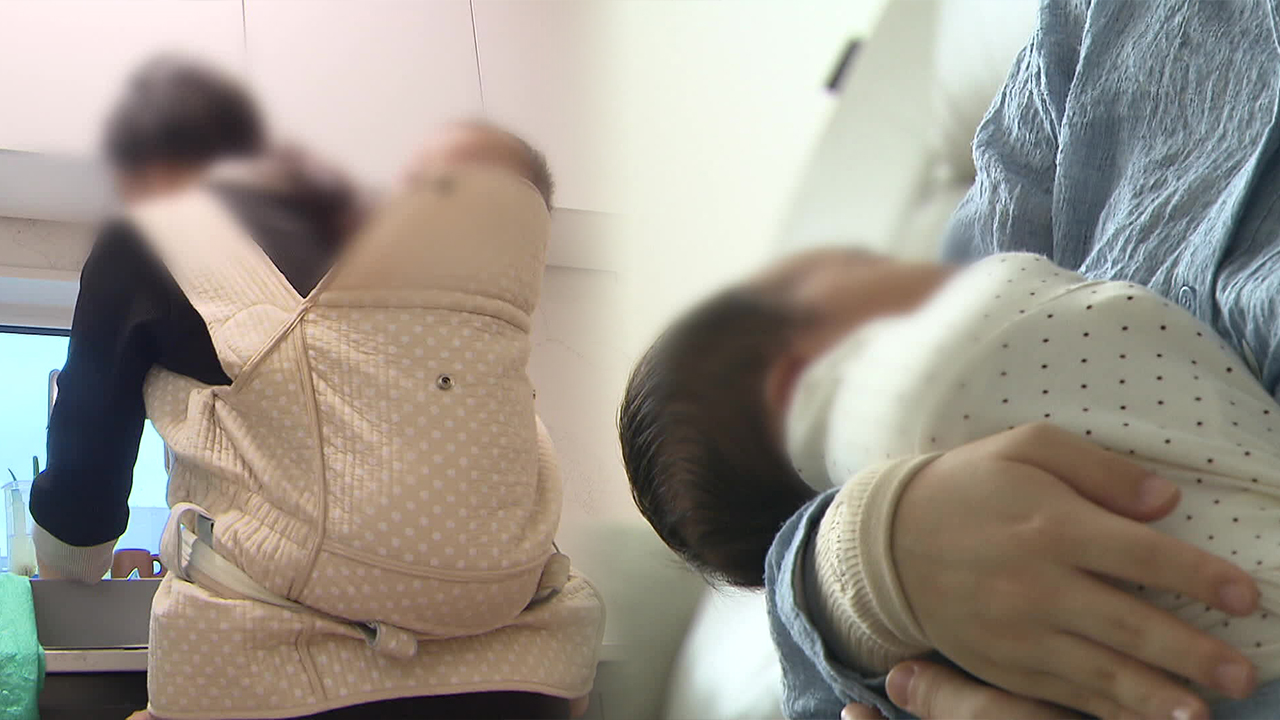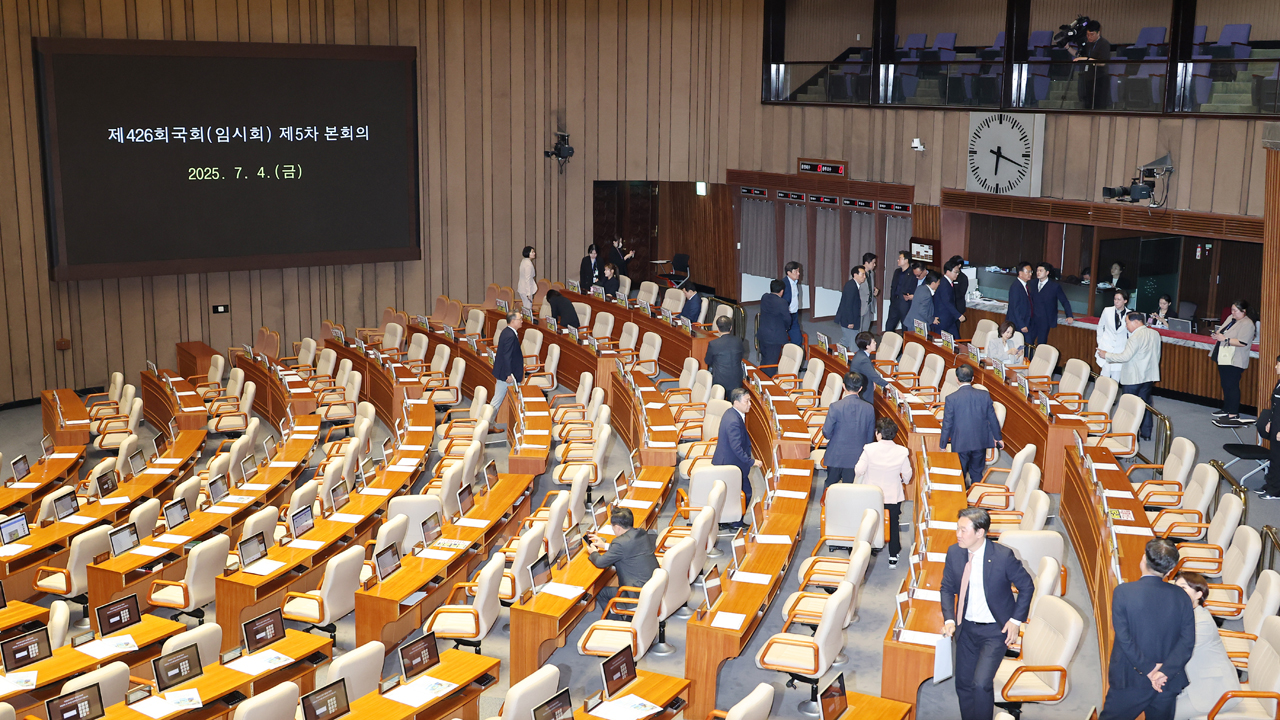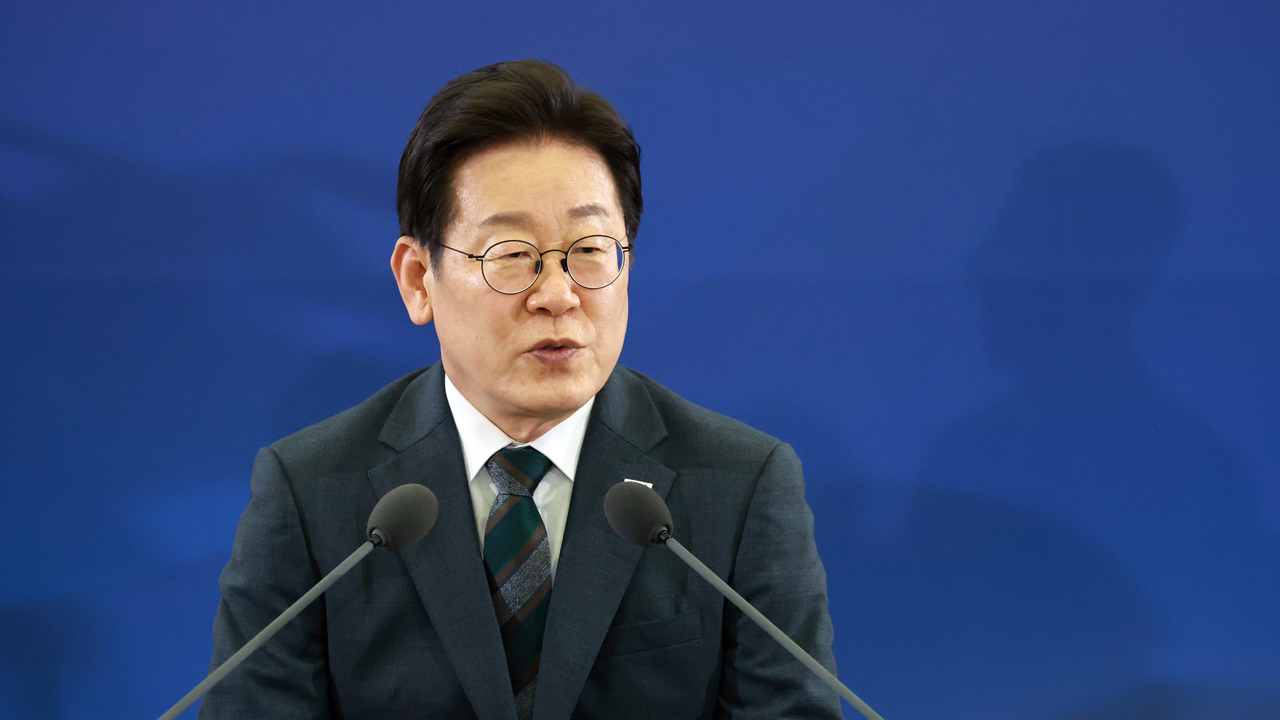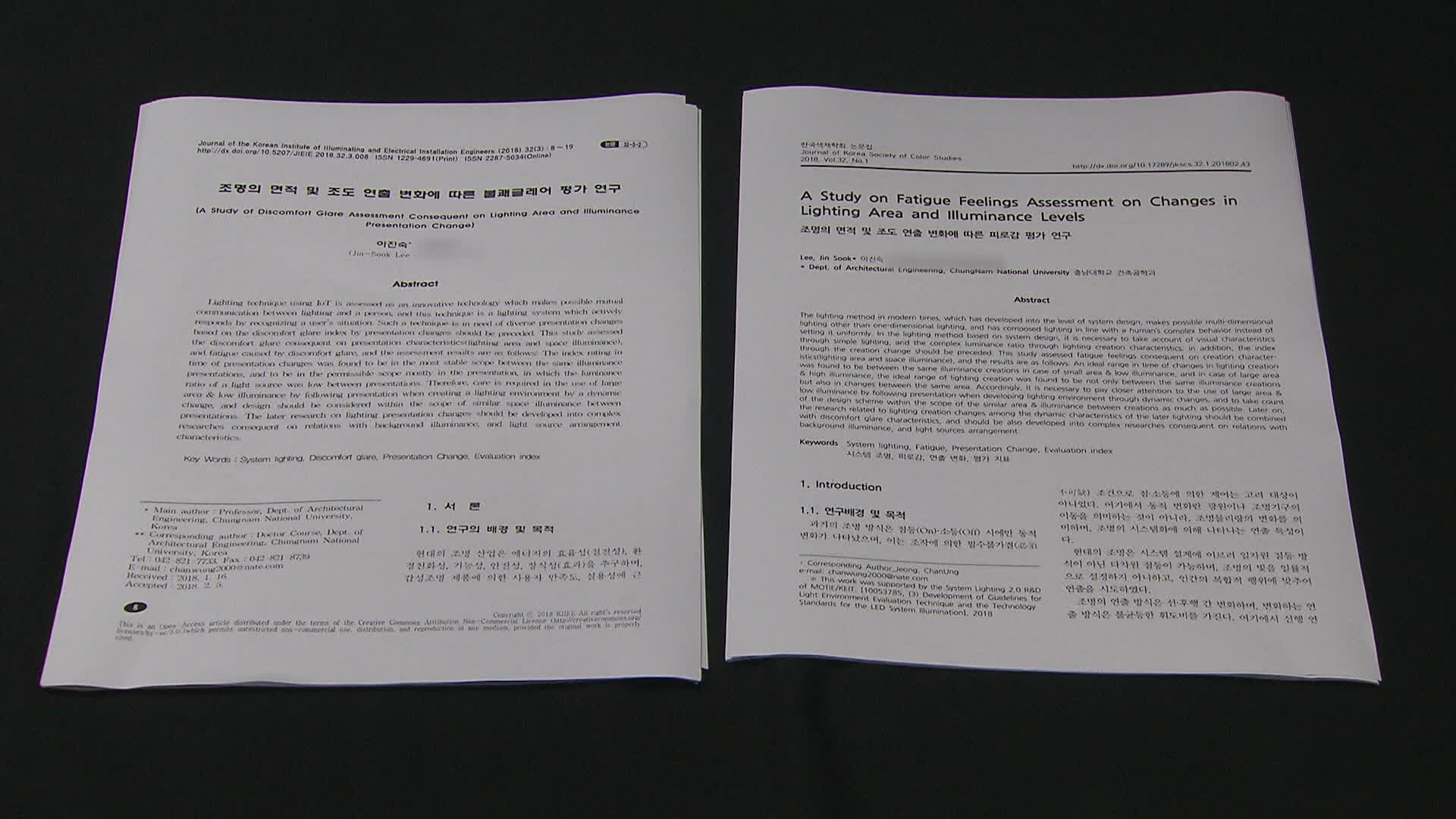Childcare support measures ineffective in practice
입력 2024.12.21 (00:05)
읽어주기 기능은 크롬기반의
브라우저에서만 사용하실 수 있습니다.
[Anchor]
In order to change the minds of those who are negative about childbirth and help them have children, the government is introducing various support measures, such as extending parental leave and reducing working hours.
However, there are still voices in the field saying that these are just empty promises.
Reporter Hwang Da-ye has the story.
[Report]
Mrs. A worked at a small software company.
She had been utilizing the parental work hour reduction system, working only four hours a day until earlier this year to take care of his two-year-old child.
Although it is a legally guaranteed system, after about eight months, the company seemed to express discomfort, and she ultimately decided to leave the company.
[Mrs. A/voice altered/'Parental Work Hour Reduction' system user: "In the end, I think transfering me to another region is akin to implicitly coercing me to leave the company. In Korean society, not having children seems to be the answer."]
Mrs. B, who works at a mid-sized company, resigned due to pregnancy.
Due to the nature of her work, which involves handling hazardous materials, she requested a transfer to another department, but the company rejected it citing fairness.
[Mrs. B/voice altered/Requested to use 'Work Transition' system: "The Pregnant Women Protection Act is not actually applied in the field, and I wonder if quitting is really the best option."]
The number of legal violations reported to the Ministry of Employment related to pregnancy, childbirth, and childcare exceeds 500 each year.
However, the actual cases where companies are prosecuted or fined are only about 5%.
Even if a company does not violate the law, the reality is that the culture of watching others makes it difficult to fully utilize parental leave.
[Kwon Ho-hyun/Lawyer/Chairman of the Special Committee on Childbirth Discrimination at Workplace Abuse 119: "The core of the culture of watching others is that long working hours, unpaid labor, and unpaid overtime practices are taken for granted, and unless this is fundamentally resolved..."]
In fact, while Korea's parental leave system itself ranks high among OECD countries, the actual utilization rate remains among the lowest.
This is KBS News, Hwang Da-ye.
In order to change the minds of those who are negative about childbirth and help them have children, the government is introducing various support measures, such as extending parental leave and reducing working hours.
However, there are still voices in the field saying that these are just empty promises.
Reporter Hwang Da-ye has the story.
[Report]
Mrs. A worked at a small software company.
She had been utilizing the parental work hour reduction system, working only four hours a day until earlier this year to take care of his two-year-old child.
Although it is a legally guaranteed system, after about eight months, the company seemed to express discomfort, and she ultimately decided to leave the company.
[Mrs. A/voice altered/'Parental Work Hour Reduction' system user: "In the end, I think transfering me to another region is akin to implicitly coercing me to leave the company. In Korean society, not having children seems to be the answer."]
Mrs. B, who works at a mid-sized company, resigned due to pregnancy.
Due to the nature of her work, which involves handling hazardous materials, she requested a transfer to another department, but the company rejected it citing fairness.
[Mrs. B/voice altered/Requested to use 'Work Transition' system: "The Pregnant Women Protection Act is not actually applied in the field, and I wonder if quitting is really the best option."]
The number of legal violations reported to the Ministry of Employment related to pregnancy, childbirth, and childcare exceeds 500 each year.
However, the actual cases where companies are prosecuted or fined are only about 5%.
Even if a company does not violate the law, the reality is that the culture of watching others makes it difficult to fully utilize parental leave.
[Kwon Ho-hyun/Lawyer/Chairman of the Special Committee on Childbirth Discrimination at Workplace Abuse 119: "The core of the culture of watching others is that long working hours, unpaid labor, and unpaid overtime practices are taken for granted, and unless this is fundamentally resolved..."]
In fact, while Korea's parental leave system itself ranks high among OECD countries, the actual utilization rate remains among the lowest.
This is KBS News, Hwang Da-ye.
■ 제보하기
▷ 카카오톡 : 'KBS제보' 검색, 채널 추가
▷ 전화 : 02-781-1234, 4444
▷ 이메일 : kbs1234@kbs.co.kr
▷ 유튜브, 네이버, 카카오에서도 KBS뉴스를 구독해주세요!
- Childcare support measures ineffective in practice
-
- 입력 2024-12-21 00:05:58

[Anchor]
In order to change the minds of those who are negative about childbirth and help them have children, the government is introducing various support measures, such as extending parental leave and reducing working hours.
However, there are still voices in the field saying that these are just empty promises.
Reporter Hwang Da-ye has the story.
[Report]
Mrs. A worked at a small software company.
She had been utilizing the parental work hour reduction system, working only four hours a day until earlier this year to take care of his two-year-old child.
Although it is a legally guaranteed system, after about eight months, the company seemed to express discomfort, and she ultimately decided to leave the company.
[Mrs. A/voice altered/'Parental Work Hour Reduction' system user: "In the end, I think transfering me to another region is akin to implicitly coercing me to leave the company. In Korean society, not having children seems to be the answer."]
Mrs. B, who works at a mid-sized company, resigned due to pregnancy.
Due to the nature of her work, which involves handling hazardous materials, she requested a transfer to another department, but the company rejected it citing fairness.
[Mrs. B/voice altered/Requested to use 'Work Transition' system: "The Pregnant Women Protection Act is not actually applied in the field, and I wonder if quitting is really the best option."]
The number of legal violations reported to the Ministry of Employment related to pregnancy, childbirth, and childcare exceeds 500 each year.
However, the actual cases where companies are prosecuted or fined are only about 5%.
Even if a company does not violate the law, the reality is that the culture of watching others makes it difficult to fully utilize parental leave.
[Kwon Ho-hyun/Lawyer/Chairman of the Special Committee on Childbirth Discrimination at Workplace Abuse 119: "The core of the culture of watching others is that long working hours, unpaid labor, and unpaid overtime practices are taken for granted, and unless this is fundamentally resolved..."]
In fact, while Korea's parental leave system itself ranks high among OECD countries, the actual utilization rate remains among the lowest.
This is KBS News, Hwang Da-ye.
In order to change the minds of those who are negative about childbirth and help them have children, the government is introducing various support measures, such as extending parental leave and reducing working hours.
However, there are still voices in the field saying that these are just empty promises.
Reporter Hwang Da-ye has the story.
[Report]
Mrs. A worked at a small software company.
She had been utilizing the parental work hour reduction system, working only four hours a day until earlier this year to take care of his two-year-old child.
Although it is a legally guaranteed system, after about eight months, the company seemed to express discomfort, and she ultimately decided to leave the company.
[Mrs. A/voice altered/'Parental Work Hour Reduction' system user: "In the end, I think transfering me to another region is akin to implicitly coercing me to leave the company. In Korean society, not having children seems to be the answer."]
Mrs. B, who works at a mid-sized company, resigned due to pregnancy.
Due to the nature of her work, which involves handling hazardous materials, she requested a transfer to another department, but the company rejected it citing fairness.
[Mrs. B/voice altered/Requested to use 'Work Transition' system: "The Pregnant Women Protection Act is not actually applied in the field, and I wonder if quitting is really the best option."]
The number of legal violations reported to the Ministry of Employment related to pregnancy, childbirth, and childcare exceeds 500 each year.
However, the actual cases where companies are prosecuted or fined are only about 5%.
Even if a company does not violate the law, the reality is that the culture of watching others makes it difficult to fully utilize parental leave.
[Kwon Ho-hyun/Lawyer/Chairman of the Special Committee on Childbirth Discrimination at Workplace Abuse 119: "The core of the culture of watching others is that long working hours, unpaid labor, and unpaid overtime practices are taken for granted, and unless this is fundamentally resolved..."]
In fact, while Korea's parental leave system itself ranks high among OECD countries, the actual utilization rate remains among the lowest.
This is KBS News, Hwang Da-ye.
-
-

황다예 기자 allyes@kbs.co.kr
황다예 기자의 기사 모음
-
이 기사가 좋으셨다면
-
좋아요
0
-
응원해요
0
-
후속 원해요
0















이 기사에 대한 의견을 남겨주세요.